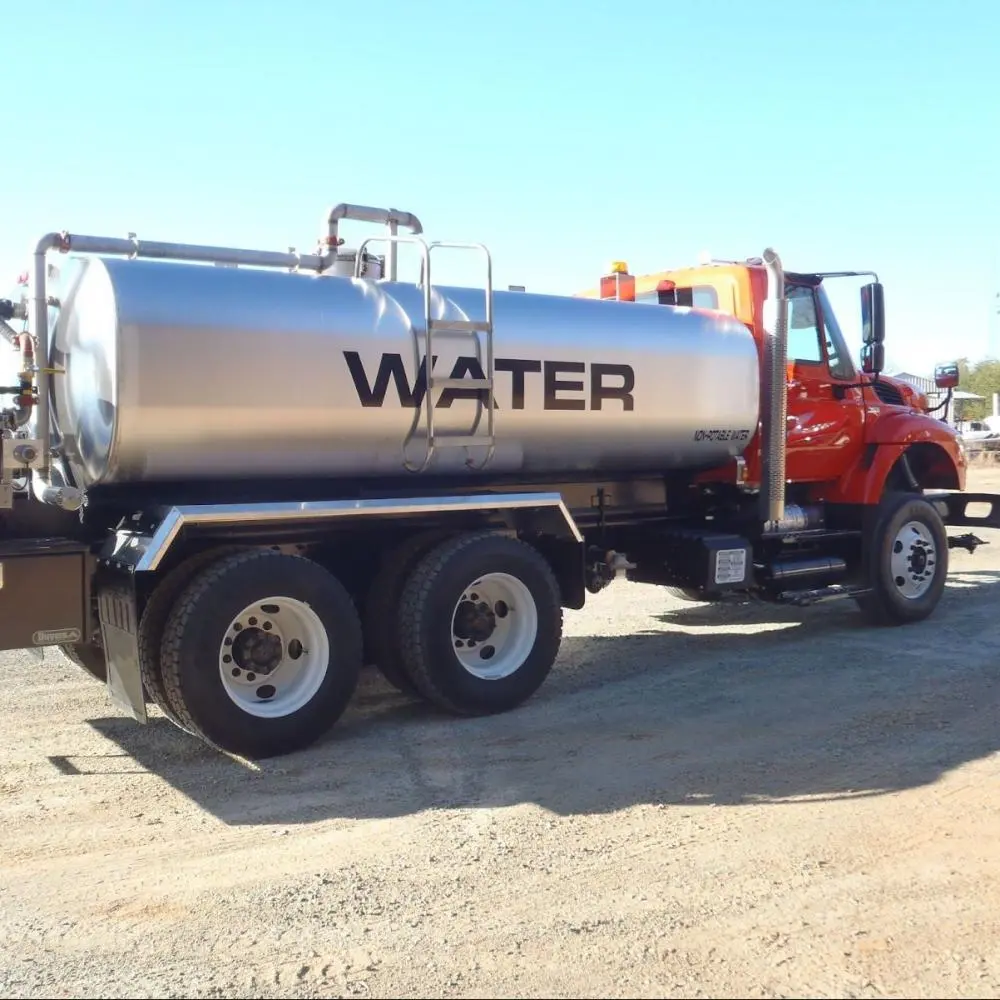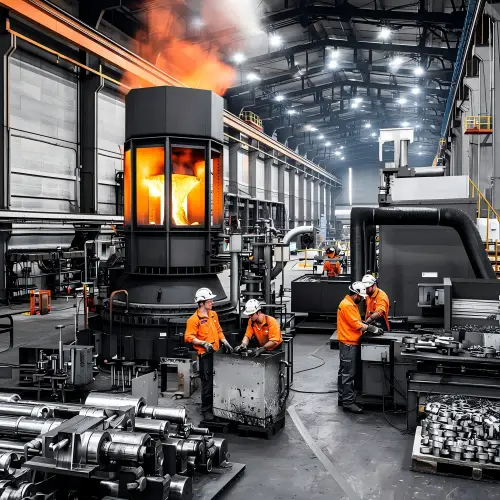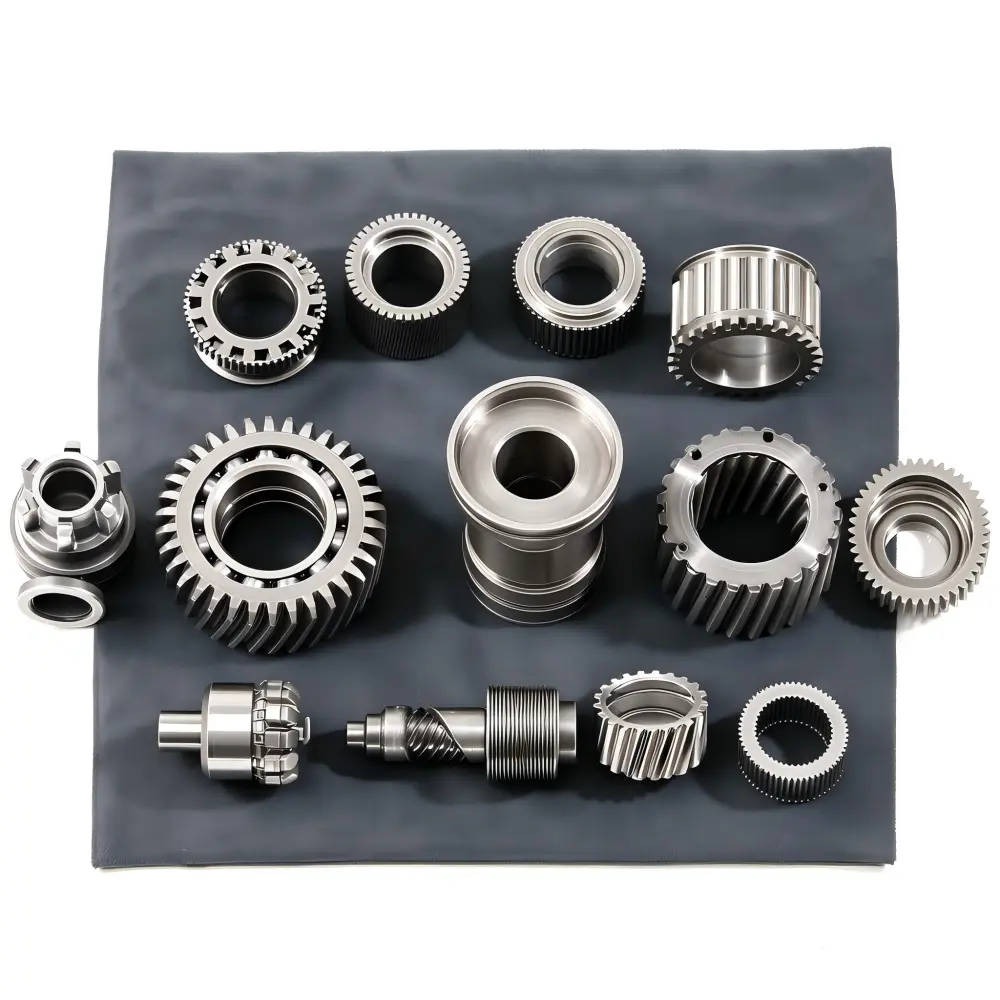Silicon Bronze Precision Casting Supplier Guide
Finding the right supplier for silicon bronze precision casting is crucial for ensuring quality and reliability in production. Selecting a supplier involves evaluating key metrics such as lead time, on-time delivery, and defect rates. These factors significantly impact production consistency and reduce supply chain disruptions. Building a strong relationship with suppliers through trust, open communication, and respect enhances product quality and efficiency. This approach not only ensures cost savings but also opens up new opportunities for long-term success.
Identifying Supplier Needs
Selecting the right supplier for silicon bronze precision casting requires a thorough understanding of project needs and budget considerations. This section outlines the critical aspects to consider when identifying supplier needs.
Understanding Your Project Requirements
Before engaging with suppliers, project requirements must be clearly defined. This ensures that the chosen supplier can meet the specific demands of the project.
Material Specifications
Silicon bronze alloys are known for their strength, durability, and aesthetic appeal. These properties make them ideal for applications in artistic and architectural fields. However, due to their complex composition, these materials can be challenging to machine. Therefore, it is essential to specify the exact alloy composition required for the project. Suppliers like Leitelt Brothers offer precision silicon Bronze Castings, ensuring that the material specifications align with the project's needs.
Production Volume and Timeline
The production volume and timeline are crucial factors in supplier selection. Suppliers must have the capability to handle the required production scale, whether it involves small batches or large-scale manufacturing. For instance, Leitelt Brothers can produce castings ranging from 1 ounce to 350 pounds, catering to diverse production needs. Additionally, setting a realistic timeline helps in assessing the supplier's ability to deliver on time, minimizing potential delays in the project.
Budget Considerations
Budget constraints play a significant role in the supplier selection process. It is vital to evaluate both the immediate and long-term costs associated with silicon bronze Precision Casting.
Cost of Materials and Services
The cost of silicon bronze materials can be high due to their specialized properties. Therefore, it is important to obtain detailed quotes from potential suppliers. Companies like R2 Quality Castings offer a wide range of materials, including silicon bronze, which can help in comparing costs across different suppliers. Evaluating the cost of services, such as machining and finishing, is also essential to ensure that the overall budget aligns with project expectations.
Long-term Supplier Costs
Long-term costs include maintenance, quality control, and potential future collaborations. Establishing a relationship with a supplier who offers competitive pricing and consistent quality can lead to cost savings over time. Uni-Cast LLC emphasizes innovation and quality in their precision investment castings, which can reduce the likelihood of costly recalls and returns. By considering these long-term costs, businesses can make informed decisions that support sustainable growth.
Researching Potential Suppliers
Finding the right supplier for silicon bronze precision casting involves thorough research. This section provides guidance on how to effectively research potential suppliers using online directories, industry networks, trade shows, and industry events.
Online Directories and Industry Networks
Online directories and industry networks serve as valuable resources for identifying potential suppliers. They offer comprehensive information about suppliers, including their capabilities and contact details.
Utilizing Supplier Databases
Supplier databases provide a centralized platform to access detailed information about various suppliers. These databases often include company profiles, financial metrics, and competitive landscapes. For instance, BlueWeave Consulting offers insights into company overviews and strategic outlooks, which can help businesses assess potential suppliers' strengths and weaknesses. By leveraging these databases, companies can efficiently shortlist suppliers that meet their specific requirements.
Engaging with Industry Associations
Industry associations play a crucial role in connecting businesses with reputable suppliers. They often host events and provide resources that facilitate networking and collaboration. Engaging with these associations allows businesses to stay informed about industry trends and innovations. Additionally, industry associations can offer recommendations for reliable suppliers based on their expertise and knowledge of the market.
Trade Shows and Industry Events
Trade shows and industry events provide unique opportunities to interact with potential suppliers face-to-face. These events showcase the latest advancements in technology and manufacturing processes.
Networking Opportunities
Networking at trade shows enables businesses to establish direct connections with suppliers. Attendees can engage in discussions, exchange business cards, and explore potential partnerships. These interactions often lead to valuable insights into suppliers' capabilities and offerings. By attending such events, businesses can expand their network and identify suppliers that align with their project needs.
Evaluating Supplier Exhibits
Evaluating supplier exhibits at trade shows offers a firsthand look at their products and services. Exhibits often feature demonstrations of casting techniques and material samples. This allows businesses to assess the quality and innovation of suppliers' offerings. Observing how suppliers present their products can also provide insights into their professionalism and commitment to quality. By carefully evaluating these exhibits, businesses can make informed decisions about potential suppliers.
Evaluating Supplier Capabilities
Evaluating supplier capabilities is a critical step in ensuring that the chosen supplier can meet the demands of silicon bronze precision casting. This involves assessing quality standards and reviewing past performance to ensure reliability and excellence.
Assessing Quality Standards
Quality standards form the backbone of any successful supplier relationship. Businesses must ensure that suppliers adhere to stringent quality guidelines to maintain product integrity.
Certifications and Compliance
Suppliers should possess relevant certifications that demonstrate their commitment to quality and compliance with industry standards. Certifications such as ISO 9001 or AS9100 indicate a supplier's dedication to maintaining high-quality processes. These certifications ensure that suppliers follow rigorous quality control measures, reducing the risk of defects and ensuring consistency in production. Quality is non-negotiable, and businesses must establish strong quality guidelines with their suppliers to ensure compliance and reliability.
Quality Control Processes
Effective quality control processes are essential for maintaining high standards in silicon bronze precision casting. Suppliers should implement robust testing procedures to identify and rectify defects early in the production process. This includes regular inspections and audits to ensure that all products meet the required specifications. By establishing clear quality control processes, businesses can foster trust and transparency with their suppliers, leading to improved product quality and efficiency.
Reviewing Past Performance
Reviewing a supplier's past performance provides valuable insights into their reliability and ability to deliver quality products consistently. This involves analyzing client testimonials, case studies, and the supplier's overall reputation in the industry.
Client Testimonials and Case Studies
Client testimonials and case studies offer firsthand accounts of a supplier's performance and reliability. Positive feedback from previous clients indicates a supplier's ability to meet project requirements and deliver quality products on time. Businesses should seek out detailed case studies that highlight the supplier's expertise in silicon bronze precision casting. These case studies provide concrete examples of the supplier's capabilities and success in similar projects.
Supplier Reputation and Reliability
A supplier's reputation in the industry speaks volumes about their reliability and commitment to quality. Businesses should research potential suppliers' reputations by consulting industry networks and online directories. A supplier with a strong reputation is more likely to deliver consistent quality and meet project deadlines. Dr. W. Edwards Deming, a renowned expert in management principles, emphasized the importance of a supplier relationship focused on constant improvement. By selecting suppliers with a proven track record, businesses can ensure long-term success and build a foundation for future innovation.
Building Relationships with Suppliers
Establishing strong relationships with suppliers is essential for successful silicon bronze precision casting projects. Effective communication and collaboration form the foundation of these relationships, while long-term partnership strategies ensure sustained success.
Communication and Collaboration
Clear communication and collaboration with suppliers enhance project outcomes. They ensure that both parties understand expectations and work towards common goals.
Establishing Clear Communication Channels
Businesses must establish clear communication channels with their suppliers. This involves setting up regular meetings and using reliable communication tools. Consistent communication helps address issues promptly and keeps projects on track. Suppliers appreciate when businesses provide detailed feedback and updates, as it allows them to adjust their processes accordingly.
Setting Expectations and Goals
Setting clear expectations and goals is crucial for successful supplier relationships. Businesses should outline their project requirements and desired outcomes from the start. This clarity helps suppliers align their efforts with the business's objectives. Regularly reviewing these goals ensures that both parties remain focused and committed to achieving them.
Long-term Partnership Strategies
Long-term partnerships with suppliers offer numerous benefits, including cost savings and improved product quality. Implementing strategies that foster these partnerships is vital for sustained success.
Regular Performance Reviews
Conducting regular performance reviews with suppliers helps maintain high standards. These reviews assess the supplier's ability to meet quality and delivery expectations. They also provide an opportunity to discuss any challenges and identify areas for improvement. By holding suppliers accountable, businesses can ensure consistent performance and build trust.
Continuous Improvement Initiatives
Continuous improvement initiatives drive innovation and efficiency in supplier relationships. Businesses should encourage suppliers to adopt new technologies and processes that enhance product quality. Collaborating on improvement projects fosters a culture of innovation and strengthens the partnership. This proactive approach reduces risks and ensures that both parties benefit from the relationship.
Industry Professionals emphasize the importance of supplier relationship management in mitigating business risks. They highlight that strong supplier relationships enhance supply chain management and help identify potential risks early. By prioritizing communication and collaboration, businesses can build reliable partnerships that support long-term success.
Thorough supplier evaluation is crucial for business success. It ensures that businesses select reliable suppliers who meet quality standards and align with project needs. Proactive relationship management fosters collaboration, communication, and loyalty, enhancing supply chain integrity. To ensure successful partnerships, businesses should:
- Conduct regular performance reviews to maintain high standards.
- Establish clear communication channels for effective collaboration.
- Encourage continuous improvement initiatives to drive innovation.
By prioritizing these strategies, businesses can mitigate risks, reduce costs, and seize new opportunities, ultimately achieving long-term success in silicon bronze precision casting projects.
Ningbo Pingheng Machinery Co., Ltd (www.phcasting.com) is a source factory that has been engaged in precision casting for many years, and the main production materials include tin bronze, silicon brass and other copper alloy materials.
See Also
The Complete Guide to Silicone Sol Precision Castings
A Comprehensive Overview of Tin Bronze Castings
The Crafting Process of Tin Bronze Precision Castings















